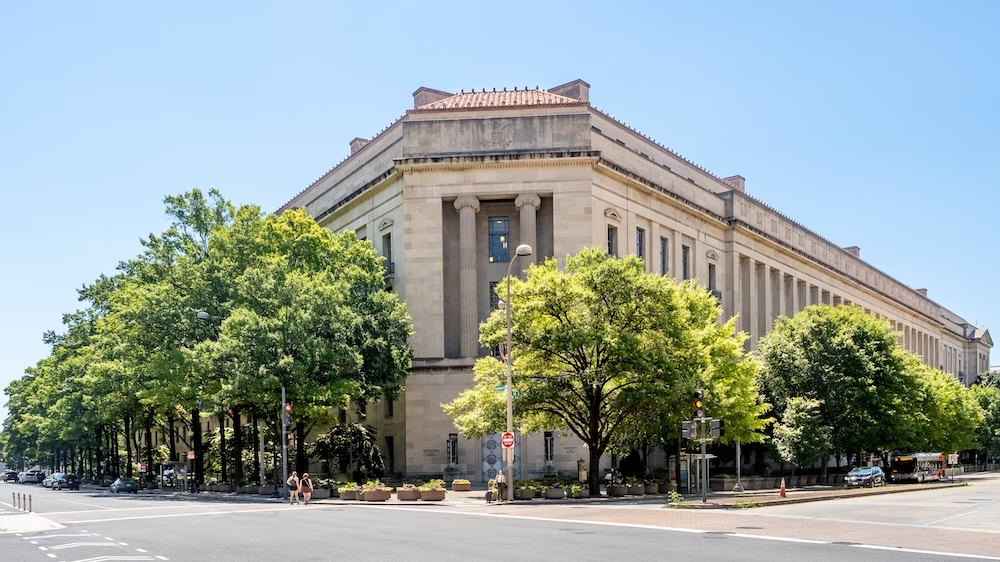On May 12, 2025, the U.S. Department of Justice Criminal Division’s Assistant Attorney General Matthew R. Galeotti announced changes to the Department’s white-collar criminal enforcement policies. Through his speech at the Securities Industry and Financial Markets Association’s annual AML conference and in a corresponding memo released that same day, AAG Galeotti laid out the DOJ’s foundational approach towards white-collar crimes and outlined key changes to prior enforcement strategies. In general, the new approach appears to be more business-focused with an eye towards efficiency and quicker resolutions. It also follows the general themes we’ve seen from the Trump Administration, prioritizing topics such as tariffs, fentanyl, government waste, and

First and foremost, the Criminal Division intends to prioritize enforcement of the following white-collar crimes:
- Healthcare and government procurement fraud
- Trade and customs fraud, including tariff evasion
- Ponzi schemes and other type of securities fraud
- Threats to national security, such as sanctions violations for hostile actors
- Material support for terrorist organizations or cartels
- Complex money laundering
- FDCA violations, such as fentanyl-laced pills
- Bribery and money laundering that impacts national interests
- Certain types of crimes involving digital assets, as outlined in the Digital Assets DAG Memorandum
Additionally, the DOJ will move forward with the following key changes:
Clear Path to Declination
Arguably the most important change is that these new policies remove some latent uncertainty and ambiguity on the outcome. Rather, the new policies provide companies with a clear path they can take towards a declination. This builds on the principles established in prior administrations that emphasized self-reporting, cooperation, transparency, and timely remediation. Under the Biden Administration, for example, companies that self-reported in good faith would typically be rewarded with a presumption of a declination following the government’s investigation. The new policy now removes any uncertainty and effectively guarantees it in certain cases.
Under these new changes, the Criminal Division Corporate Enforcement and Voluntary Self Disclosure Policy clearly states that, provided certain conditions are met, “[t]he Criminal Division will decline to prosecute[.]” (emphasis added). These conditions include:
- Voluntary self-disclosure;
- Full cooperation;
- Timely and appropriate remediation of misconduct; and
- No aggravating factors.
Just as important, companies that may be facing certain aggravating factors or those that self-disclosed after the DOJ already discovered the misconduct can still receive favorable benefits. Cooperation in these situations can still lead to a non-prosecution agreement, a 75% reduction in penalties, and a guarantee that no compliance monitor will be appointed. Furthermore, these companies could still be eligible for a full declination depending on the circumstances around the misconduct and the company’s cooperation and remediation efforts.
To better provide clarity on the paths available, the DOJ created a handy flow chart:

As AAG Galeotti stated recently: “[s]elf-disclosure is key to receiving the most generous benefits the Criminal Division can offer.”
Individual Accountability Prioritized
The DOJ clearly notes that their “first priority is to prosecute individual criminals.” While the Department may appear to be softening their aggression against corporate entities, it appears that the reverse will be true on the individuals that perpetrate the misconduct. Rather, the DOJ will investigate these individuals “relentlessly,” irrespective of their seniority in the organization. This will also likely have the effect of shifting the burden of defense costs away from the company and towards the individuals, for better or for worse.
Indeed, this priority bleeds into the cooperation element. Companies that self-disclose must provide all “relevant facts and evidence about all individuals involved in or responsible for the misconduct at issue, including individuals inside and outside of the company regardless of their position, status, or seniority.” The importance of conducting an effective internal investigation remains paramount.
Limited Monitorships
In his speech, AAG Galeotti noted that “the value of monitors add is often outweighed by the costs they impose,” and noted that monitorship will be relatively uncommon going forward. Indeed, his recent memo indicates that any potential monitorships “must be narrowly tailored to achieve the necessary goals while minimizing expense, burden, and interference with the business.”
Following this foundation, the DOJ also issued a new monitor selection memorandum that lays out the variables it will analyze to determine whether a monitor is necessary in a given situation. This will include (1) the risk of recurrence of the underlying misconduct, (2) the availability and efficacy of other independent regulator oversight, and (3) the effectiveness of the company’s compliance program and underlying culture, and (4) the maturity of the company’s controls and its ability to independently test and update its internal compliance program.
Even when a monitor is deemed necessary, the DOJ intends to keep them narrowly tailored and implement some guardrails to ensure that happens. Specifically, the DOJ will require monitor teams to adhere to fee caps and provide work plans and budgets for approval with the Department. Furthermore, the DOJ expects to keep a watchful eye on monitors by maintaining an open an ongoing dialogue between all parties involved—including the company that was involved in the misconduct—in order to make sure the monitorship achieves its intended goals.
Retroactive Application
Interestingly enough, the new policy memo reveals that AAG Galeotti directed his staff to review existing agreements and monitorships to determine whether these new policies should apply. Several agreements have already been terminated early due to a finding that the companies involved have met the terms and are now back in good standing. Additional agreements are still under review, and I would expect more to be terminated early in the coming months. The DOJ is also reviewing existing monitorships to determine if any changes are necessary there as well.
Expansion of Whistleblower Awards Program
In lockstep with the new enforcement priorities, the DOJ also announced additions to its corporate whistleblower program. The following categories have been added effective immediately:
- Offenses related to international cartels or transnational criminal organizations.
- Violations of immigration law
- Offenses involving the support of terrorism
- Sanctions offenses
- Trade, tariff, and customs frauds
- Procurement fraud
This program has been relatively effective in helping the Department’s efforts in combating white-collar crime. The program incentivizes—relatively significantly—individuals to come forward with information on corporate misconduct. Reporters may be eligible to receive up to 30-percent of the funds recovered.
